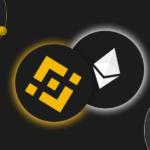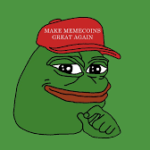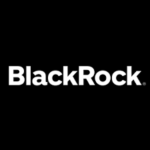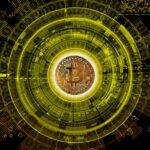A DAO, or Decentralized Autonomous Organization, is a type of organization that is run completely by programmed rules and autonomous code. They are self-governed and operate without the need of a centralized decision-making body, like a board of directors or CEO. Instead, DAOs are powered by smart contracts and blockchain technology, and are run on the consensus of all members. This allows for a more transparent and efficient way of decision-making, as no one person or group is in control of the organization. Furthermore, because the code and governance structure of the DAO is open source, anyone can join and participate in the DAO.
The concept of a Decentralized Autonomous Organization (DAO)
A Decentralized Autonomous Organization (DAO) is a type of business organization that is managed and operated by a decentralized network of computers, rather than centralized human management. The computers are programmed to follow a set of rules and protocols, which may include voting and decision making. This allows for decisions to be made quickly, without the need for human intervention. The purpose of a DAO is to eliminate the need for centralized control and allow for more efficient business operations. The computers within the DAO are also responsible for managing financial transactions and maintaining the security of the network. This type of organization has the potential to revolutionize the way businesses are operated and can provide more efficiency and transparency.
The components of a DAO
A Decentralized Autonomous Organization (DAO) is an organization that is run through a set of smart contracts on a blockchain network. It is designed to be self-governing and operate without the need of human intervention. The components of a DAO include the governance model, which outlines the rules of the organization and how decisions are made; the token, which is used to incentivize participation and reward those who contribute to the organization; the smart contracts that are used to execute the rules of the organization; and the stakeholders, who are the users of the DAO. DAOs provide a way to create new types of organization that are decentralized, transparent, and trustless.
The potential benefits of utilizing a DAO
The potential benefits of utilizing a DAO (Decentralized Autonomous Organization) are considerable and far-reaching. Firstly, DAOs are autonomous and operate without the need for any centralized authority or governing body. This gives users a great deal of freedom and flexibility when it comes to decision-making, as it allows them to shape the organization’s direction according to the collective will of its members. Secondly, DAOs are secure, being powered by distributed ledger technology, and are highly resilient against external manipulation. Furthermore, DAOs are transparent and offer unparalleled levels of traceability, allowing users to verify transactions and audit decision-making processes. Finally, DAOs offer scalability and cost-efficiency, allowing businesses to quickly and easily access the resources they need without the need for additional infrastructure. All in all, the potential benefits of utilizing a DAO are plentiful and should not be overlooked.
The challenges associated with implementing a DAO
Implementing a DAO (Decentralized Autonomous Organization) comes with both opportunities and challenges. On the one hand, DAOs offer great potential in terms of decentralization, trustless decision-making, and cost-savings. On the other hand, there are significant technical and legal challenges associated with implementing a DAO. For one, the underlying code base must be precise and secure in order to ensure the DAO’s proper functioning. Additionally, DAOs must be able to interact with existing legal and regulatory frameworks, which can be difficult to navigate. Finally, the DAO must have sufficient liquidity and governance mechanisms in place to ensure that its decisions are taken in the best interests of its members. All of these challenges must be addressed for a successful DAO implementation.
The potential applications of a DAO
A Decentralized Autonomous Organization (DAO) is a type of organization that is run through computer code and is decentralized, meaning that it is not owned or managed by any one individual or group. By utilizing a DAO, organizations are able to secure their data and assets, create a transparent system of governance and manage their resources in an efficient, cost-effective manner. DAOs have the potential to revolutionize a variety of industries, from banking and finance to healthcare and energy. For example, in finance, a DAO could be used to securely store and transfer funds, manage investments, and automate financial transactions. In healthcare, a DAO could be used to securely store and share patient records, streamline the delivery of healthcare services, and provide medical advice. In energy, a DAO could be used to access real-time data on energy production and consumption, manage energy resources, and automate the distribution of energy. With such a wide range of potential applications, DAOs have the potential to revolutionize the way businesses operate in the future.
Difference between DAO and other organizational models
A Decentralized Autonomous Organization (DAO) is a type of organization that is driven by code and is decentralized, meaning that there is no central authority running the organization. This is in contrast to traditional organizational models, which are typically led by a CEO or Board of Directors, and may have a hierarchical structure. The difference between a DAO and other organizational models is that the DAO is entirely automated and operates based on a set of predetermined rules. Furthermore, the governance of a DAO is decentralized, meaning that it is governed by its members, rather than a centralized authority. This makes the DAO more resilient to external influences, as the rules and decision-making processes are already predetermined, and the members have control over the organization.
The legal implications of a DAO
A Decentralized Autonomous Organization (DAO) is an organization that operates on smart contracts on the blockchain, allowing it to function in a decentralized and trustless manner. This means that DAOs are not subject to traditional legal frameworks, and instead are governed by the code and consensus of its members. This presents a unique challenge for legal and regulatory bodies, as new rules and regulations need to be created in order to account for this new form of organization. As such, it is important for legal analysts to consider the implications of creating a DAO and ensure that any potential laws or regulations are in line with the DAO’s goals and objectives. The potential legal implications of a DAO should be carefully analyzed in order to ensure that its members are protected and that the DAO is compliant with relevant laws and regulations.











